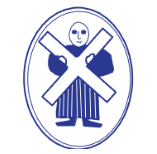FAQ

FAQs about Freemasonry
What is Freemasonry?
Freemasonry is a centuries-old fraternal organization that promotes personal growth, moral values, and philanthropy. It is based on a system of allegory and symbolism, using rituals and ceremonies to impart moral and ethical teachings. Freemasonry values brotherhood, charity, integrity, and the pursuit of knowledge.
How can I become a Freemason?
To become a Freemason, you need to express your interest in joining and meet certain criteria. Freemasonry is open to men of good character who believe in a higher power and have a desire for self-improvement. Contact your local Masonic lodge to express your interest and begin the process of becoming a member. If you wish to become a member of our St. Andrews 231 Lodge, please use the contact page to send a message.
What are the benefits of joining Freemasonry?
Freemasonry offers numerous benefits, including opportunities for personal growth, lifelong friendships, and a sense of belonging to a supportive community. It provides a platform for philanthropic activities and charitable initiatives, allowing members to make a positive impact on society. Freemasonry also offers intellectual stimulation through Masonic education and promotes the development of moral values and ethical conduct.
Are Freemasons a secret society?
Freemasonry is not a secret society, but it has certain traditions and practices that are considered private to its members. Freemasons openly identify themselves and their lodges. The “secrecy” associated with Freemasonry refers to the private nature of certain rituals and ceremonies, which are meant to create a meaningful and transformative experience for the initiates.
Is Freemasonry a religious organisation?
Freemasonry is not a religion, nor does it promote a specific religious doctrine. However, it requires its members to believe in a higher power, referred to as the “Supreme Being” or the “Great Architect of the Universe.” Freemasonry accommodates individuals from various religious backgrounds and encourages them to practice their faith.
Are women allowed to join Freemasonry?
Traditionally, Freemasonry has been a male-only organization. However, there are separate branches of Freemasonry that admit women. These organizations operate independently but share similar values and teachings.
What is the role of rituals and symbolism in Freemasonry?
Rituals and symbolism play a significant role in Freemasonry. They are used to convey moral and philosophical lessons through allegorical stories and symbols. The rituals create a sense of unity and shared experience among members, reinforcing the teachings and principles of Freemasonry.
Are Freemasons politically involved?
Freemasonry, as an organization, does not engage in political activities or endorse specific political ideologies. It upholds the principle of political neutrality and encourages its members to be law-abiding citizens who respect the government and its institutions. However, individual Freemasons may participate in politics or hold public office based on their personal choices and convictions.
How do Freemasons contribute to charity?
Freemasonry places great importance on charity and philanthropy. Lodges and individual Freemasons contribute to charitable causes through donations, fundraising events, and volunteer work. They support various local and international initiatives, focusing on education, healthcare, disaster relief, and assistance for those in need.
Is Freemasonry a worldwide organization?
Yes, Freemasonry is a worldwide fraternity. It has lodges and members in countries across the globe. Freemasonry operates through Grand Lodges, which oversee the lodges within a specific jurisdiction. These Grand Lodges adhere to certain shared principles and values while allowing for regional variations.
How does Freemasonry support personal growth and development?
Freemasonry offers a platform for personal growth and development through its rituals, ceremonies, and educational programs. It encourages members to cultivate virtues, expand their knowledge, and strive for moral and intellectual improvement. Freemasonry fosters a supportive environment where individuals can develop leadership skills, engage in meaningful discussions, and learn from the experiences and wisdom of fellow members.
